40 Easy Ways to Stretch Your Paycheck
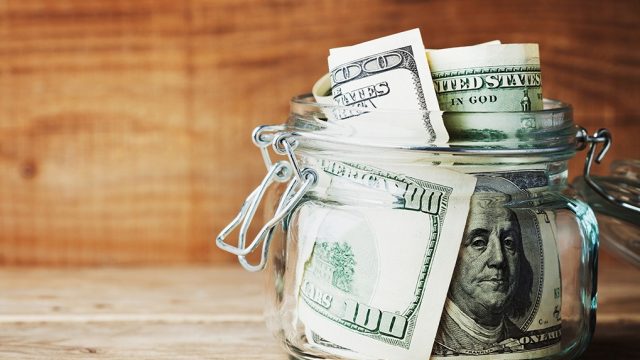
Sure, who wouldn’t love to get an unexpected financial windfall that really boosts your net worth practically overnight? You know: a big spot bonus, an unexpected raise, or (why not?) a Powerball win. But the truth is, if you really want to pile on the savings, you needn’t wait for those dollar bills to just rain from the sky. In fact, there are tons of ways to get more mileage of the cash you already have. You just need to follow these forty tips for making the most out of every single paycheck. So read on, and watch your bank account rise. And for more ways to improve your net worth and your life, instill yourself with the 5 Ways Billionaires Think Differently Than Most People!
1
Write Down Your Monthly Expenses

You may know, at least in a general sense, how much you’re spending on a monthly basis, but when you actually have your financial info written down on paper, that number may surprise you. Spend a few weeks keeping all of your receipts, track your spending on credit cards, and make a point to put all the info together at the end of the month. When you take into account those small purchases—like a latte here or pack of gum there—you’re not likely to forget that everything you’re doing can really add up. And for more ways to put your savings on hyperdrive, start living the life you dream about by discovering The Best Way to Earn $500,000 in Your Spare Time!
2
Bring Your Lunch to Work

Brown-bagging it isn’t exactly glamorous, but it can mean major savings over the course of a year. If you bring your lunch to work five days a week, shelling out approximately $2 per lunch instead of spending $14 bucks on a sandwich, fruit, and drink, you’ll pocket $12 per day. That may seem like chump change at first, but by the end of the week, you’ll be $60 richer.
By the end of the year, you’ll have an extra $3120 to enjoy. If you start working at 22 and retire at 65, brown-bagging it on a daily basis can mean a savings of over $134,000—not exactly chump change anymore. Bringing your own food good for your finances and your well-being; to get even healthier in a hurry, check out the 100 Ways to Be a Healthier Man!
3
Stick to a Shopping List

Sticking to your shopping list can mean making huge headway on your savings goals in a short amount of time. When you’re heading to the grocery store with a few recipes in mind, but without a list in hand, it can be tempting to grab some extra shampoo or stock up on essentials that are on sale.
Doing this can mean your grocery bill goes from regular guy to Richard Branson-level balling out in a hurry. To avoid those impulse buys, be it a pack of gum or 16 pounds of filet mignon, stick to your shopping list and leave any extras for the following week. Shopping lists can make your finances less taxing, but to make your whole life less stressful, you need the 30 Easy Ways to Fight Stress.
4
Grab the Guy Version

Sorry ladies: sad as it may be, the so-called pink tax is as real as it is unfair. If you want to save a handful of cash on every trip to the drugstore, get the guy version instead.
In fact, a study conducted by the New York Department of Consumer Affairs found that, across 35 product categories, women’s products cost more 42 percent of the time. Odds are, switching out the pink persimmon-scented shaving cream for the men’s version—Artic Blade, Dire Wolf, or what have you—won’t interfere with the quality of your shave, anyway.
5
Do a Meatless Monday

Want to enjoy the feeling of a fatter wallet? Try giving up meat once a week. Opting for a veggie fajitas, a chickpea curry, or a grilled cheese sans bacon can save you between $5 and $10 every week. Over a year, this can add up to more than $500 in savings, enough to start a little nest egg for the future.
Even better, a 2016 study published in JAMA Internal Medicine found that every three percent increase in plant-based protein reduced overall mortality risk by 10 percent. For more ways to improve your health, discover the 40 Ways to Never Get Sick After 40!
6
Give Yourself a 30-Day Purchase Period

That coat that looked amazing on you in the store or that bag you just have to have may seem like solid purchases in the moment, but give it a month and you’ll likely find your intense desire to own them waning.
Before you make a big-ticket purchase, whether that means spending $100 dollars or $10,000, give yourself a 30-day waiting period. Chances are that burning desire to buy you initially felt will have dissipated; if not, go ahead and give in if your budget allows. Buying stuff is a short-lived high; and make every day a more meaningful one by incorporating the 25 Ways to Get Happier Now into your routine!
7
Put Your Financial Goals on Paper

While vision-boarding your way to a higher income bracket may be little more than a waste of your time and crafts supplies, writing down your financial goals can mean you’re making major headway toward a more stable financial future in no time. In fact, research from Dominican University of California reveals that individuals who wrote down their goals were significantly more likely to achieve them than those who didn’t commit them to paper.
8
Bring Coffee From Home

Your coffee maker is a veritable fountain of wealth. Opting for a coffee that you brew in the comfort of your own home instead of heading to your local coffee shop can mean your paychecks last significantly longer than you anticipated. Swapping just one takeout coffee at an average price of $4 a pop for $.50 worth of the home-brewed stuff can save you $1277.50 over the course of a year.
9
Sign Up For a Prescription Refill Service by Mail

Instead of spending your next lunch hour waiting at the pharmacy for your prescription to be ready, sign up for a prescription refill service that sends your prescription to you instead. Prescription refill services not only mean you get your prescription on time—every time—they also mean you’re not wasting money driving to and from the pharmacy; cutting out a monthly trip back and forth can save you lots of money over the course of a year.
10
Don’t Shop Hungry

Two rules for a better life: don’t go to bed angry and don’t shop hungry. When you hit the grocery store on an empty stomach, you’re much more likely to make impulse purchases that can really ad up. In fact, researchers at the University of Minnesota’s Carlson School of Management found that individuals who fasted for four hours before taking a survey requested 70 percent more products than those who had just eaten cake before the study.
11
Sign Up For a Rewards Credit Card

If you’re eligible for a credit card with rewards points, go ahead and sign up. While some people are tempted to overspend when they have access to credit, if you know you can pay off the card every month, the rewards can be pretty wonderful. For many cards that offer gift cards in exchange for rewards points, you’ve got those holiday gifts for your extended family members covered at no cost to you. For those who are racking up frequent flier miles, they can seriously offset the cost of a vacation—and when you consider that the average family of four spends nearly $5,000 per trip, you’ll be pocketing a ton of cash.
12
Hit the Lights

Keeping your lights off will save you an arm and a leg in the long run. Running just one little incandescent lightbulb for 24 hours can cost you $17 over the course of a year. Hit the lights when you leave rooms and that paycheck will last you a lot longer than you were expecting.
13
Sign Up For Rewards Programs
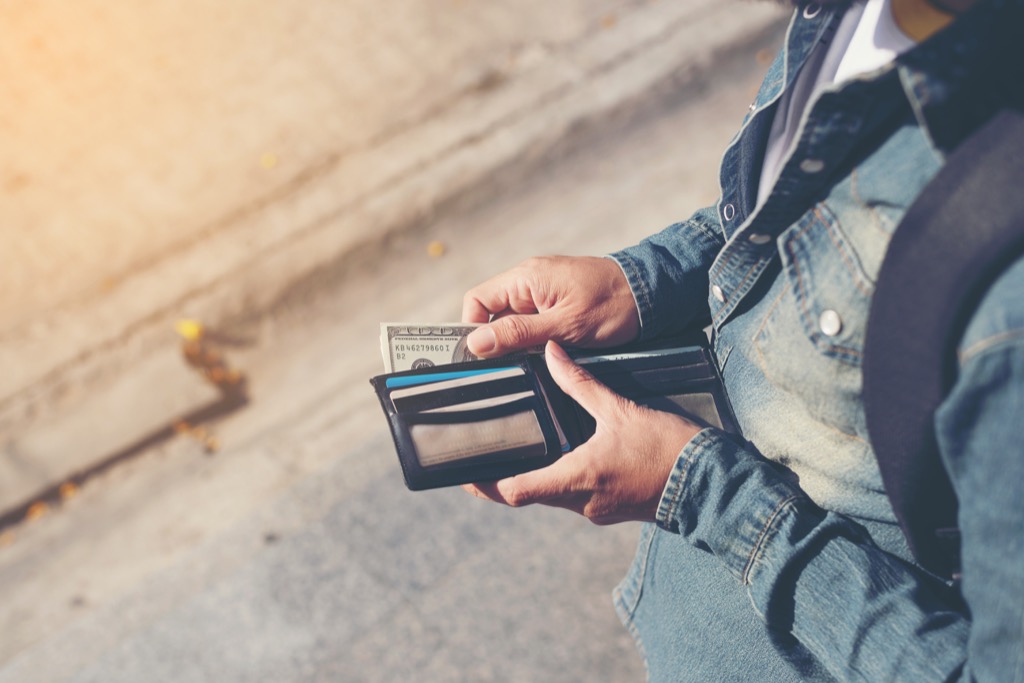
Businesses like Office Depot, Petco, Rite Aid, and CVS all offer free rewards programs that offer up to 5 percent back on your purchases.
14
Unplug Your Chargers

Even when you’re phone’s not charging, your charger is sucking up energy, which means they’re costing you money all the time. So unplug and turn appliances off before you leave the house for the day. According to the U.S. Department of Energy, doing so can save you as much as 10 percent on your energy bills every year.
15
Start Saving Now
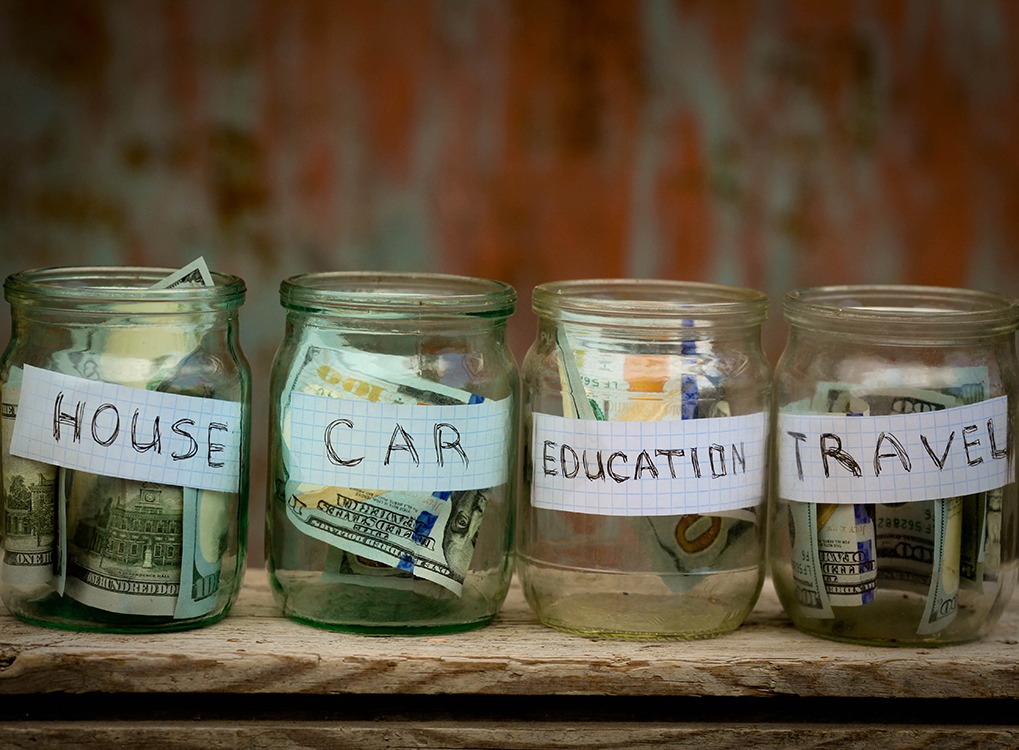
Even if your current paycheck is a few zeros from where you’d like it to be, any money you put into an interest-bearing account now can make a major difference in the future. Based on calculations from the U.S. Securities and Exchange Commission, just $100 invested today and an additional $5 added to that pot a month will yield you $2616.22 over a 30-year period with just two percent annual interest.
16
Change Your Own Oil

With the help of YouTube and your local auto parts shop, you can learn to change your own oil in an afternoon. Considering that most mechanics and car manufacturers recommend an oil change every 3,000 miles at around $25 bucks a pop, you could save hundreds every year by DIYing it.
17
Steer Clear of Temptation Aisles

Take a tip that parents have known forever: if a grocery checkout counter has candy, it’s best to avoid it. While not everyone is blowing tons of cash on sweets every time they pick up some laundry detergent at the store, counters with candy tend to stock other impulse items, like tabloid magazines, soda, and even eye glass repair kits. Pick up one just one $5 magazine every other week for a decade and you’ll have wasted $1300 on something you’ll eventually just throw away.
18
Buy Generic

Brand loyalty is a serious business and marketers know it: it’s why the sight of the Coca-Cola Santa Claus fills you with nostalgia and the smell of Tide reminds you of home. However, breaking yourself of that bad brand addiction can save you thousands of dollars a year. When you look at the ingredients list, you’ll quickly realize that the only difference between the store-brand hand soap, dryer sheets, or antibacterial wipes and the brand-name stuff is the price, making it a whole lot easier to opt for the generic stuff and keep your wallet full.
19
Sell Clothes That Don’t Fit

It’s nice to imagine that we’ll be sliding back into our college-era skinny jeans any day now, but the truth is those old clothes are doing little more than wasting space in your closet. If you’re looking to unload that surplus and earn some extra cash, apps like Poshmark, ThredUp, Tradesy, Mercari, and Vinted can help you get rid of that too-small stuff and get paid for doing it.
20
Switch Banks
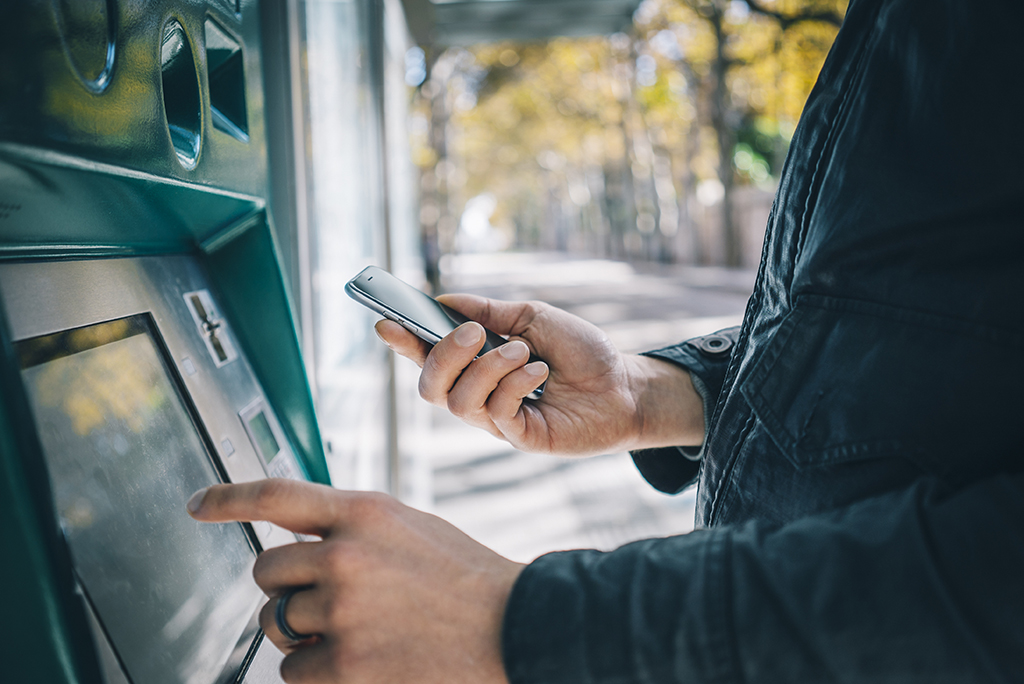
Want a little extra cash in your account at the end of the month? Say goodbye to your current bank. Switching to a new bank can mean you’re not only getting a new customer bonus, which can be as much as a few hundred dollars, it may also save you on checking account fees, which can save you upwards of $100 every year.
21
Learn to Sew
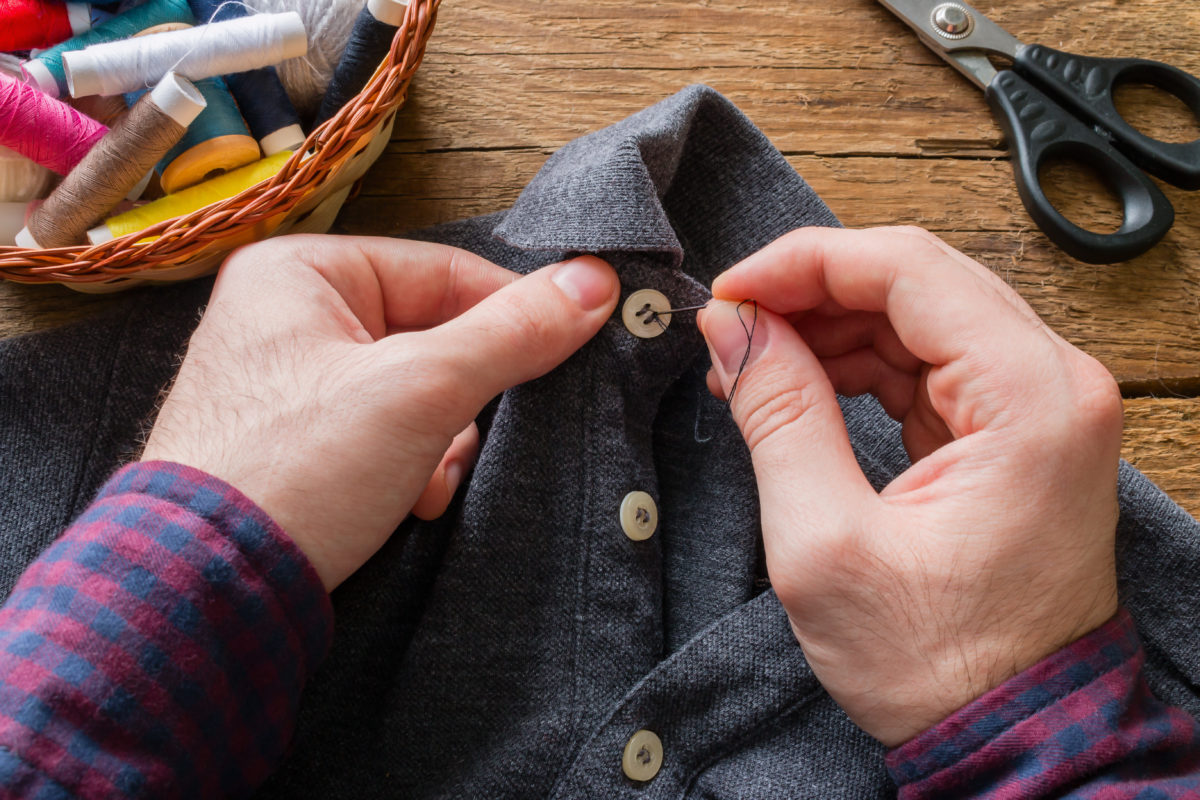
Your tailor may know exactly how to make your suits fit like a glove, but that doesn’t mean that every missing button or dropped hem needs to cost you a boatload of cash. Learning to sew can save you hundreds of dollars a year, meaning that ripped clothes can be repaired and reused, and that those pants that are suddenly a size too big after your diet can be taken in without a tailor.
22
Ask Your Neighbors For Their Junk Mail
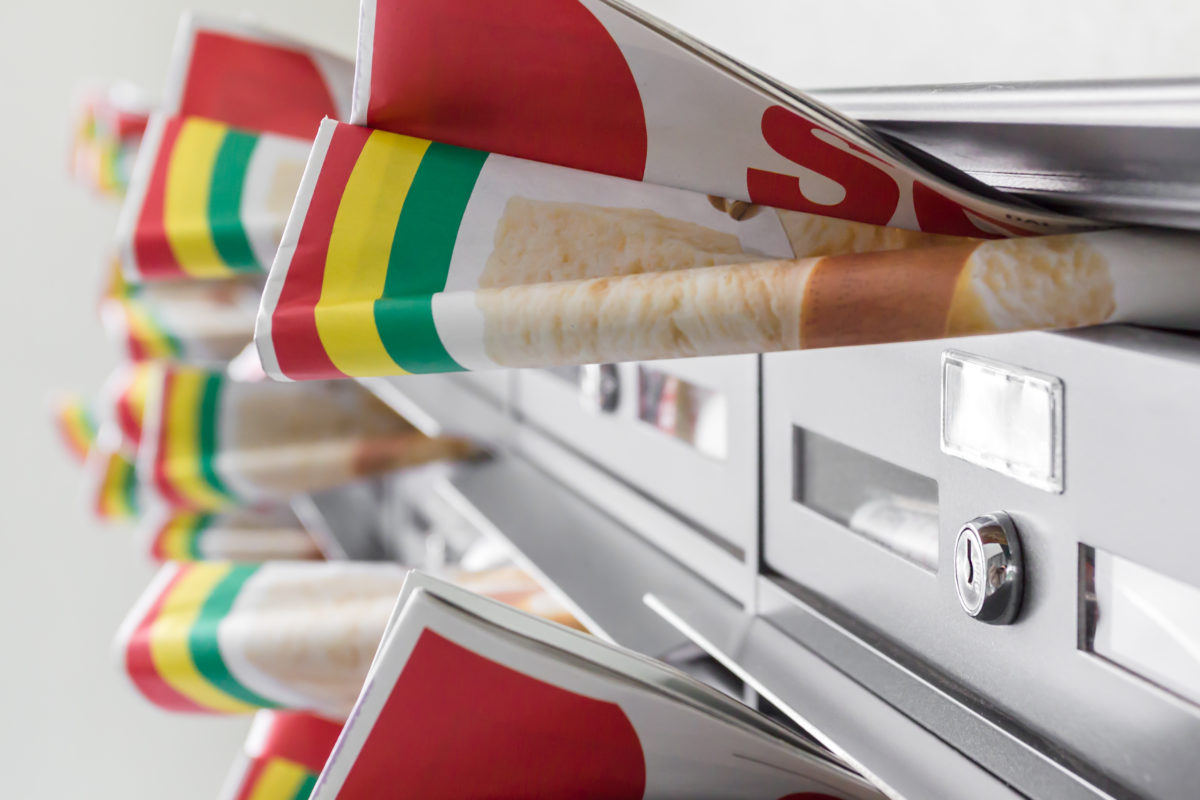
Do this to score double manufacturer coupons for the things you buy on a regular basis, saving you a boatload of cash on your next shopping trip.
23
Download a Price Comparison App

Even if you don’t have the spare time have time to compare the price of eggs or milk between every grocery store in your area doesn’t mean you can’t get the best deal. Price comparison apps like ScanLife, ShopAdvisor, and ShopSavvy can make sure you’re saving the most money possible each time you hit up the supermarket, meaning you can put that extra cash into savings and start watching it grow.
24
Use Streaming Services

While buying DVDs has largely gone the way of the dinosaur, purchasing music is still a pretty costly—and common—enterprise. Instead of buying albums, use streaming services like Spotify and Pandora; you’ll save money and enjoy access to a world of music you might not otherwise listen to.
25
Shop For Holidays a Year Early

Gearing up for the holidays can mean a major investment of time, energy, and most of all, cash. Fortunately, there’s a simple way to save money on those little expenditures that tend to add up, like decorations, wrapping paper, and ornaments: buy a year early. That $15 ornament will be discounted to a fraction of the price starting the day after Christmas, and holiday wrapping paper goes from multiple dollars a roll to mere cents when the holidays are through.
26
Switch to CFLs

Save money and energy in one fell swoop by investing in CFLs for your home instead of regular incandescent bulbs. According to Consumer Reports, even after the initial upfront cost of purchasing a slightly costlier CFL, you’ll reap an average of $57.55 in energy savings per bulb. If you have 30 fixtures and lamps in your home, that’s $1,726.50 saved just by swapping out your bulbs.
27
Shop the Perimeter of the Grocery Store

Want to eat healthier and save cash? Try shopping the perimeter of the grocery store instead of going down every aisle. The edge of the grocery store tends to be where essentials like vegetables, meat, dairy products, and sale items are offered, making it easier to avoid the temptation of junk food that can be a burden on both your body and your wallet. Just a single $3.99 package of cookies left on the shelf each week can mean you’re saving more than $200 each year, as well as thousands of empty calories.
28
Invest in a Slow Cooker

It may be a bit of an upfront investment, but a slow cooker can save you big money in the long run. Slow cookers make it easy to throw in a batch of ingredients and liquid and return home after work to a fully-cooked meal.
Perfect for soups, stews, curries, and fall-off-the-bone meat dishes, slow cookers not only make it easy to clear out those leftover ingredients in your fridge that would have otherwise gone to waste, but cut down the time you spend cooking to almost zero—time is money, after all.
29
Clean the Filters in Your Car

Cleaning the filters on your car can do more than keep your air clean, it can also extend the life of your car. As your filters get increasingly clogged, the limit the amount of air getting to your engine. Over time, this can mean you’re getting fewer miles per gallon of gas, meaning you’re spending more on fuel and getting less performance from it.
Cleaning out your air filters every 15,000 miles and replacing them from time to time can save you significant cash on gas and save you all that money you would need for a down payment on a new car.
30
Bring a Water Bottle With You

If you’re eager to save money, start bringing a water bottle with you everywhere you go. According to The Water Project, only about 20 percent of plastic water bottles are recycled, leading to more than two million tons of bottle-related waste in U.S. landfills alone. Even if you only buy a single bottle of water a day, you’ll be saving $547.50 each year by opting for tap water instead.
31
Grow a Garden

For an initial investment of just a few dollars, you can eat healthier, get more exercise, and enjoy more delicious meals by starting a garden. Seed packets often cost less than a dollar, but can yield hundreds of dollars’ worth of organic produce each year.
Not much of a green thumb? Start with easy-to-grow herbs and resilient veggies, like arugula, tomatoes, carrots, cucumbers, and peas that you can use in numerous recipes; not only will the plants themselves save you money, but you’ll also limit the amount of gas you’re using.
32
Turn Off the TV

While keeping the TV off can save you a little money on your electric bills, it’s the lack of advertising that will really pay off in the end. In fact, research conducted by academic publisher Taylor & Francis found that overweight people had a stronger desire to eat after seeing food advertising, putting them at risk for not only increased weight gain, but increased spending, too. Even if skipping those ads means cutting out just one Big Mac a week, that means you’ll have an extra $262.08 to your name by the end of the year.
33
Pay in Cash
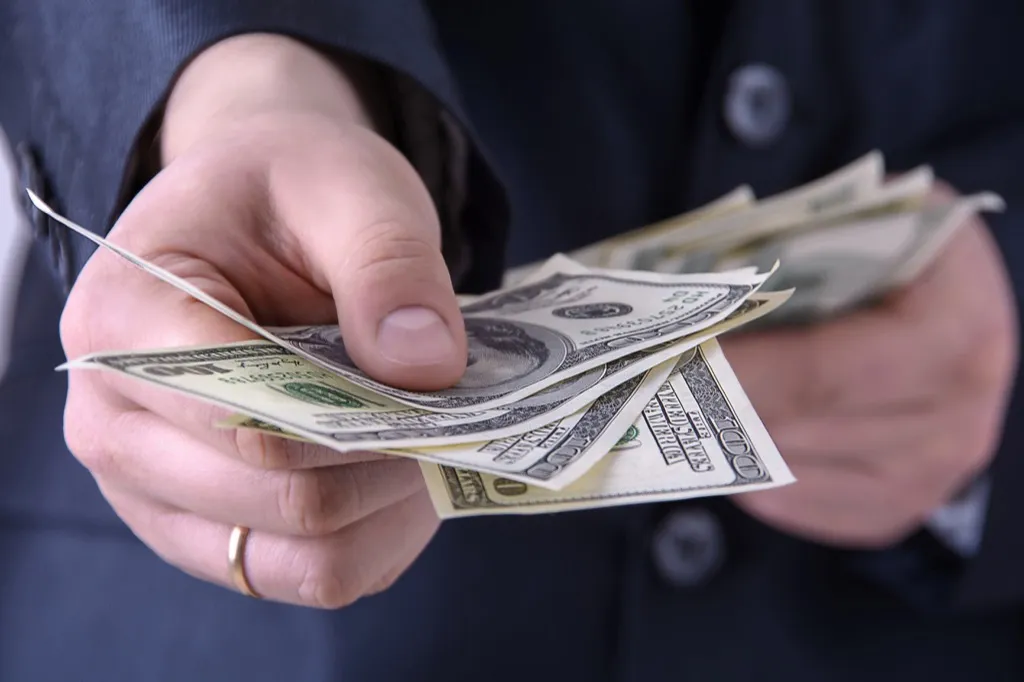
When it comes to saving, using cash is king. According to research conducted at the University of Toronto Scarborough, people who paid in cash were more attached to their purchases, while a study published in the Journal of Consumer Research reveals that paying on credit cards made shoppers more likely to spend money and buy impulse items. Each week, give yourself a dedicated cash budget, leave your cards at home, and enjoy the peace of mind that comes along with never encountering a shockingly high credit card statement again.
34
Negotiate Your Hospital Bills

According to NerdWallet, medical debt is the number one cause of personal bankruptcy, and with good reason: just one major medical event can cost hundreds of thousands of dollars, particularly for those who are uninsured or use out-of-network doctors. The good news? Most hospitals offer some leeway when it comes to your bill, offering discounts for people who pay in full or on time. If you don’t have the cash up front, some hospitals will even allow you to set up an interest-free payment plan.
35
Join a Rideshare Group

Make your commute a little less dull and keep some extra cash in your pocket by joining a rideshare group. According to the U.S. Energy Information Administration, the average American household spends approximately $2,000 each year on gas, but if you carpool just two days a week, you can save up to $800 bucks a year.
36
Negotiate Your Car Insurance
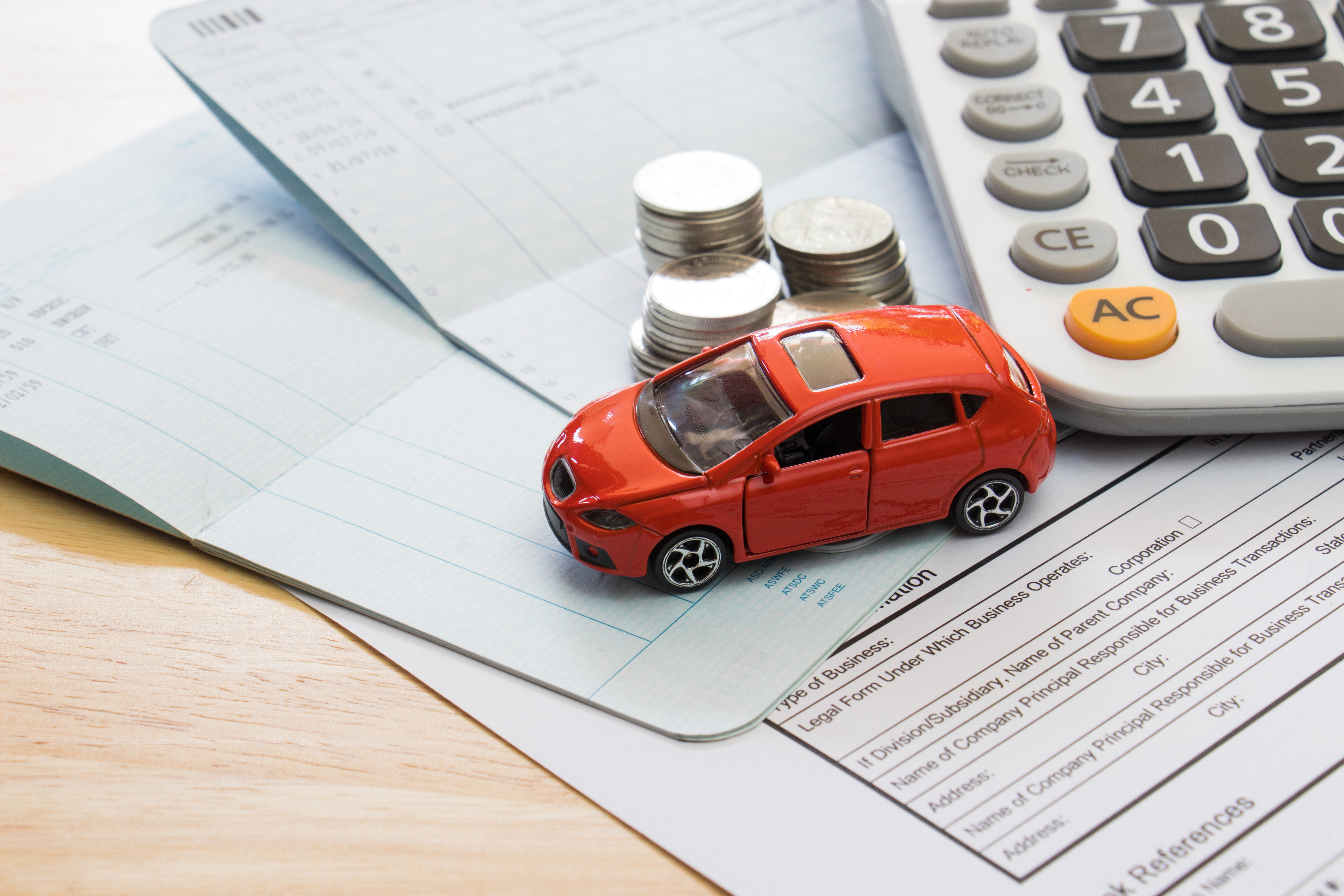
You may think of your car insurance as something with a fixed price, when, in reality, it’s as variable as your credit card rates. If your credit score improves, you start making more money, or you reduce your debt-to-income ratio, you may quickly become eligible for a better insurance rate.
37
Get a Programmable Thermostat

Want to avoid a chilly house or sky-high electric bills? Try out a programmable thermostat. Programmable thermostats, like the Nest Learning Thermostat, do mean a slight upfront cost, but once they’ve figured out your temperature preferences and adjusted accordingly, they can save you hundreds or thousands of dollars a year.
38
Skip the Prepared Foods
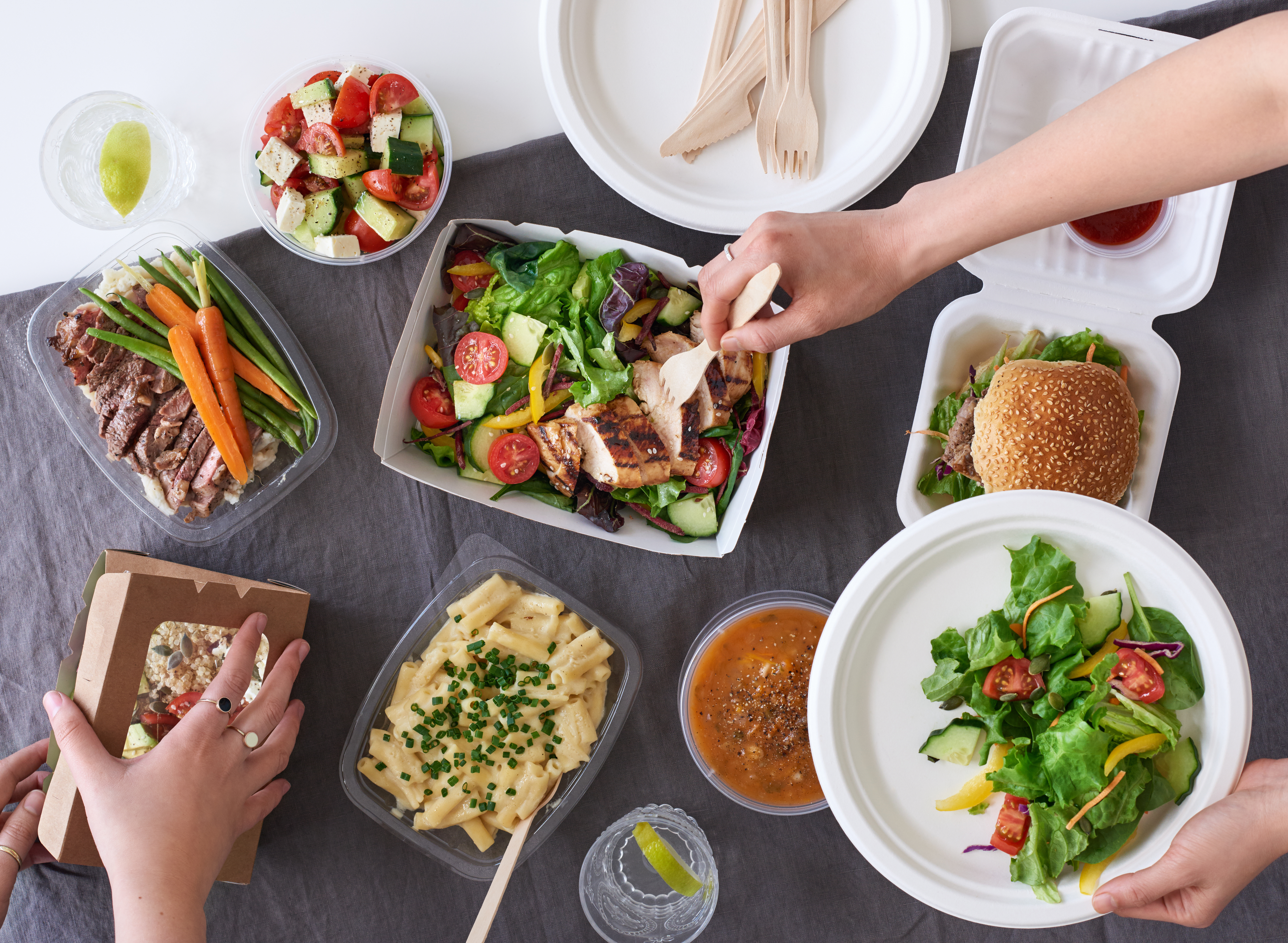
Sure, meal prep is a time-intensive endeavor, but doing it can save you hundreds, if not thousands of dollars every year, stretching those paychecks and making your life easier in the process. According to data from the United States Department of Agriculture, millennials are spending 44 percent of their food dollars eating prepared and take-out foods. When you consider that researchers at the University of Washington School of Public Health found that those who cooked for themselves saved money and ate healthier, you’ll have plenty of incentive to dust off those pots and pans.
39
Keep a Change Jar
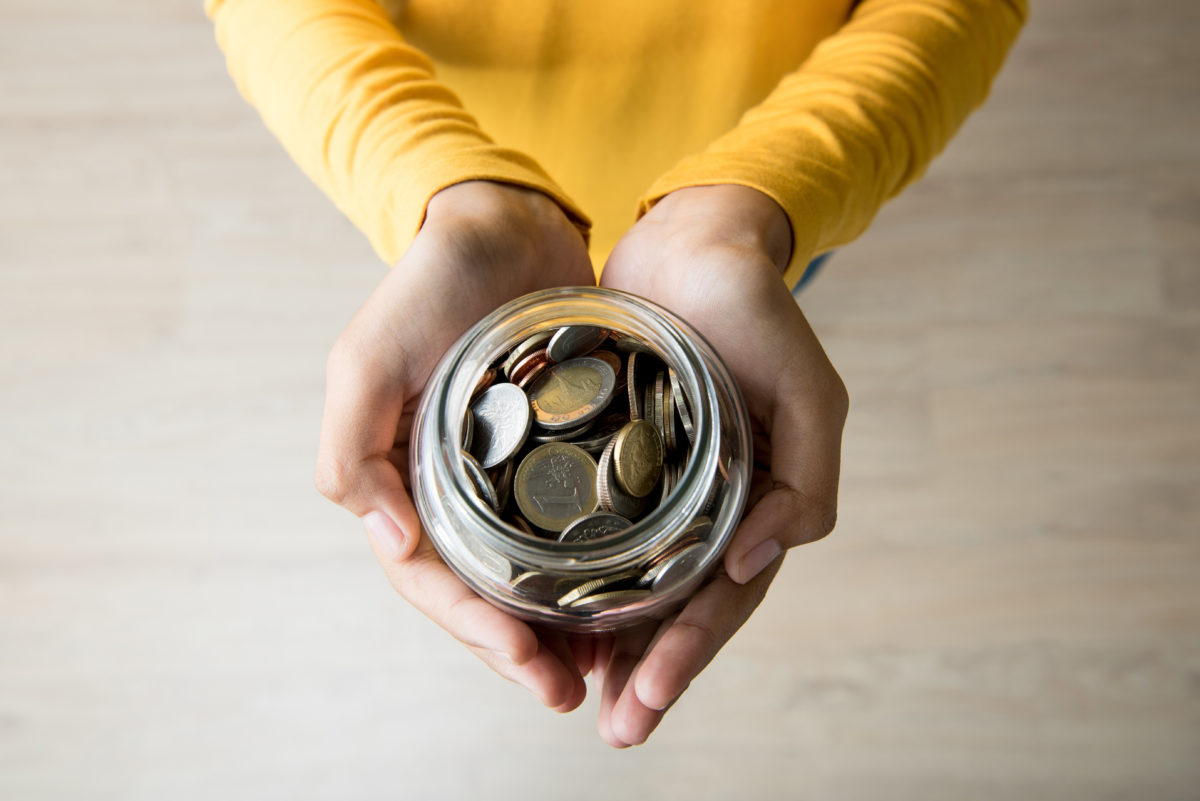
While cash is hardly king these days, saving what’s left in your wallet at the end of the day could save you big in the long run. Emptying your wallet into a jar at the end of the day and giving yourself a separate, fixed budget for the following one means you’ll be saving without feeling deprived. Tossing just a dollar and fifty cents into that jar every day for a year means you’ll have an extra $547 in your savings at the end of 12 months. Sounds like it’s time to get a bigger jar.
40
Cool Off

According to the U.S. Department of Energy, decreasing the temperature in your house by between 7 and 10 degrees over an 8-hour period each day—approximately the amount of time you’re spending in bed—can save you 10 percent on your energy costs, saving hundreds of dollars a year. Even better, researchers at Virginia Commonwealth University and Australia’s Garvan Institute of Medical Research have discovered that sleeping in a 66-degree room increased study participants’ healthy brown fat by 42 percent and increased their metabolic rate by 10 percent. And for more advice on boosting your savings, don’t forget to learn about these 20 Lucrative Side Hustles!
For more advice on living your best life, sign up for our newsletter now!